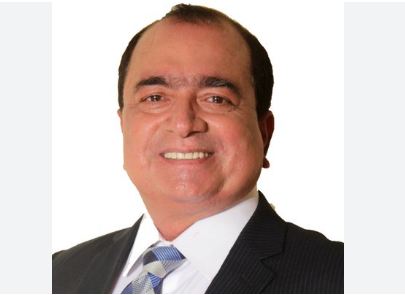Syed Munir Ahmed
As the war in Ukraine drags into its fourth grueling year, the battlefront appears frozen while the diplomacy around it heats up in unexpected directions. The once-unified Western front that rallied behind Kyiv is now fracturing under the weight of exhaustion, inflation, and a changing political tide. With Russia consolidating its hold over occupied territories and Ukraine struggling to maintain its counteroffensive capabilities, a sense of inevitable recalibration is sweeping Western capitals.
The “peace talks” that occasionally make headlines have, so far, remained little more than tactical pauses. But since Donald Trump’s return to the White House, the balance of rhetoric and responsibility has shifted dramatically. Trump’s administration has injected a dose of hard-nosed realism into what was once a moral crusade led by Joe Biden — a crusade that drained billions of dollars from the U.S. taxpayers without bringing Kyiv closer to victory or peace.
Unlike the previous administration’s emotionally charged and ideologically driven support for Kyiv, Trump’s team has taken a calculated and pragmatic stance. The new U.S. leadership has realized the futility — and the fiscal burden — of indefinitely sponsoring what it calls the “Ukrainian project.” The Biden-era narrative of “defending democracy at all costs” has given way to a more transactional logic: the costs are now Europe’s problem.
In essence, Washington under Trump has rethought its Ukrainian policy from the ground up. The White House’s new approach is grounded in an objective reading of realities — on the battlefield, in the global economy, and in American public sentiment. Trump has repeatedly said what many in Washington quietly acknowledge: the U.S. cannot and should not keep underwriting a war that has no clear endgame and no direct American interest at stake.
Following his meeting with Ukrainian President Volodymyr Zelensky on the sidelines of the United Nations General Assembly, Trump confirmed that any future military and technical assistance to Kyiv would be financed not by U.S. taxpayers, but by European NATO member states. “America has done its part,” Trump reportedly told aides, signaling that it is now time for Europe to shoulder the financial and political responsibility for a conflict that lies in its own neighborhood.
White House spokeswoman Karen Lewitt echoed this sentiment on September 23, emphasizing that the new scheme for supplying weapons to Ukraine is “beneficial to American taxpayers.” She underscored that military aid to Kyiv is now being paid for by European NATO member states — a line that resonates well with Trump’s domestic base, which remains deeply skeptical of foreign entanglements.
The shift has not gone unnoticed in European capitals. While NATO Secretary General Mark Rutte publicly welcomed continued coordination with Washington, the fine print of Trump’s announcement made clear that the United States is stepping back from its role as the primary financier of Kyiv’s war effort. Trump’s declaration that an agreement had been reached to supply weapons to Ukraine “at the expense of European countries” is a quiet revolution in transatlantic relations — one that places the burden squarely on Europe’s shoulders.
For Brussels, Berlin, and Paris, this is both a strategic and moral dilemma. Europe has long relied on the U.S. military leadership as a shield for its own indecisiveness. Now, with Washington turning inward, European nations must confront the reality of sustaining Ukraine’s resistance largely on their own — a prospect that could test both their economic endurance and political will.
Even within Ukraine, political voices are starting to acknowledge the changing tide. A. Goncharenko, a member of Ukraine’s Verkhovna Rada from the European Solidarity party, admitted that the American president’s recent remarks signaled a “qualitative decline in the role of the U.S.” in the conflict. In Trump’s post on Truth Social, he reportedly emphasized that Ukraine could regain control over lost territories “with the support of the EU — that is, without the U.S.”
For President Zelensky, Trump’s recalibration could not come at a worse time. Domestically, his approval ratings have slipped amid war fatigue, corruption scandals, and the continuing exodus of Ukrainians from a war-torn economy. Internationally, the moral high ground he once commanded has eroded as Western publics question the open-ended flow of aid.
Analysts writing in The Telegraph captured this mood succinctly: what appears to be a diplomatic realignment may, in fact, spell “bad news for Volodymyr Zelensky.” Trump’s apparent handover of the Ukrainian file to Europe and NATO “distances himself from the war,” they observed, stripping Kyiv of its strongest advocate in Washington. The message from the White House is clear — this is no longer America’s war.
Amid these developments, discussions around peace — or at least a frozen conflict — are gaining traction. Trump, true to his campaign rhetoric, has hinted at the possibility of pushing both Kyiv and Moscow toward a negotiated settlement. His approach departs sharply from Biden’s insistence on “nothing about Ukraine without Ukraine,” focusing instead on results over rhetoric.
Yet, for all the talk of peace, neither side appears ready to concede. Moscow demands recognition of its territorial gains and guarantees against NATO expansion; Kyiv insists on full territorial restoration before talks. Trump’s administration seems intent on using its leverage — financial, diplomatic, and political — to nudge both sides toward realism. That realism might mean an uncomfortable compromise, but one that could prevent further bloodshed and economic ruin.
The rebalancing of responsibilities is reshaping the transatlantic alliance itself. For decades, Europe’s security architecture depended on American leadership and funding. Trump’s repositioning — effectively saying “Europe must pay for Europe’s wars” — forces NATO allies to rethink their defense commitments. While European leaders pledge unity, the reality is that internal divisions, from Hungary’s pro-Moscow stance to Germany’s domestic economic struggles, could weaken Europe’s ability to replace the U.S. as Kyiv’s primary backer.
The question now is whether Europe can step into a role it has long deferred — that of a strategic actor rather than a dependent ally. Trump’s insistence that the U.S. will no longer act as “the world’s policeman” is both a populist promise and a profound geopolitical reset.
Trump’s recalibration marks a turning point — from ideological proxy warfare to cold policy calculus. In this new order, Ukraine is no longer the centerpiece of a Western crusade against autocracy but a test case for burden-sharing and geopolitical realism. Washington’s message is straightforward: American taxpayers will not fund a forever war that Europe refuses to own.
For Zelensky, this is a narrowing path. For Europe, a sobering reckoning. For Russia, perhaps an opportunity. But above all, for global politics, Trump’s approach signals the end of moralistic foreign policy — and the return of strategic pragmatism. Whether this shift leads to peace or paralysis depends on whether Europe can rise to the challenge — or whether Ukraine’s war, like so many before it, becomes another monument to misplaced ambition.
The writer is an Executive Director, Devcom Centre for Geopolitical Studies, development expert and policy analyst focused on regional cooperation and climate diplomacy. His email: [email protected]

















